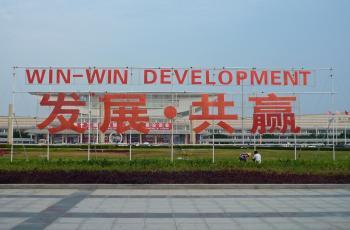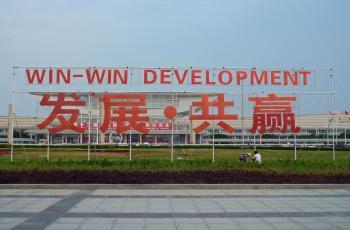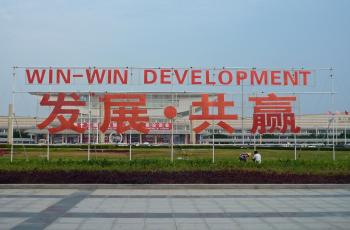Movie Review: ‘When China Met Africa’
Since the early 1990s, China has been strategically extending its reach into Africa, extracting resources, selling things, and setting up migrants and entrepreneurs to go forth and multiply.

WIN-WIN: A large sign, extolling the inevitable benefits of China-Africa dealings, outside the Xiamen Trade Fair Exhibition Hall in China. Speak-it Productions Ltd
|Updated:






